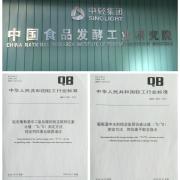
The CNIFFI is, among other things, the public organisation in charge of drawing up technical standards for fermented beverages.
Dr Ruf, who had already met with representatives of this body in September 2012, presented the missions and activities of the OIV in the field of oenological practices and methods of analysis to the CNIFFI delegation led by the Director, Dr Deliang Wang.
The discussions were particularly focused on the OIV's activities and the impact of its standards on global vitiviniculture, especially with regard to methods of analysis. The members of the CNIFFI emphasised the importance of OIV standards and recalled the involvement of their Institute with the Guangdong Inspection and Quarantine Technology Center (IQTC) in translating the OIV Compendium of Methods of Analysis into Chinese. Likewise, the heads of the CNIFFI indicated that, very recently, OIV methods of analysis relating to the determination of the isotope ratio of carbon and oxygen had been included in Chinese analytical standards.
The CNIFFI representatives finally stressed the importance of the work of the OIV and the interest in continuing to exchange information between the two organisations.
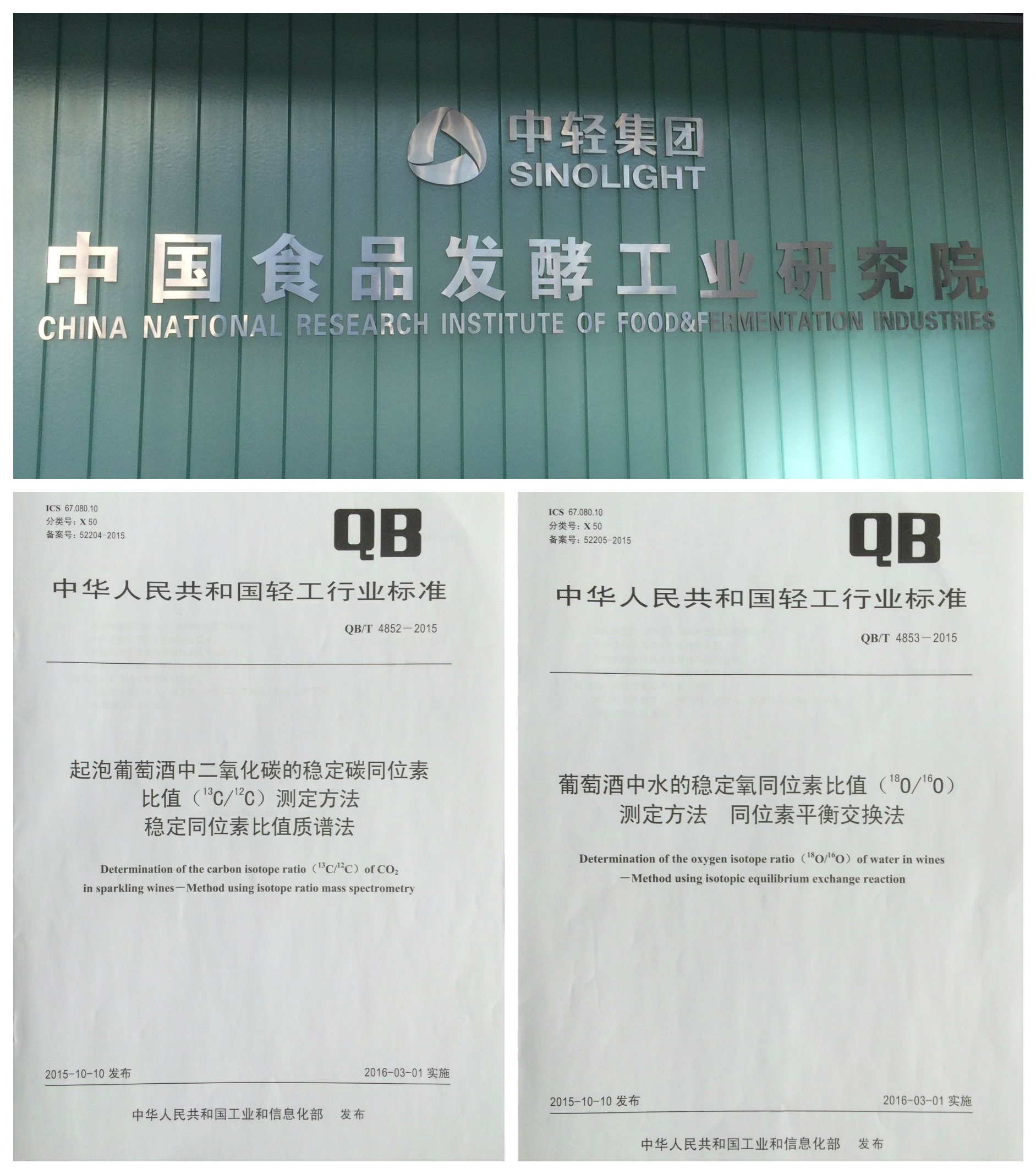
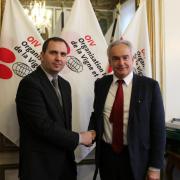
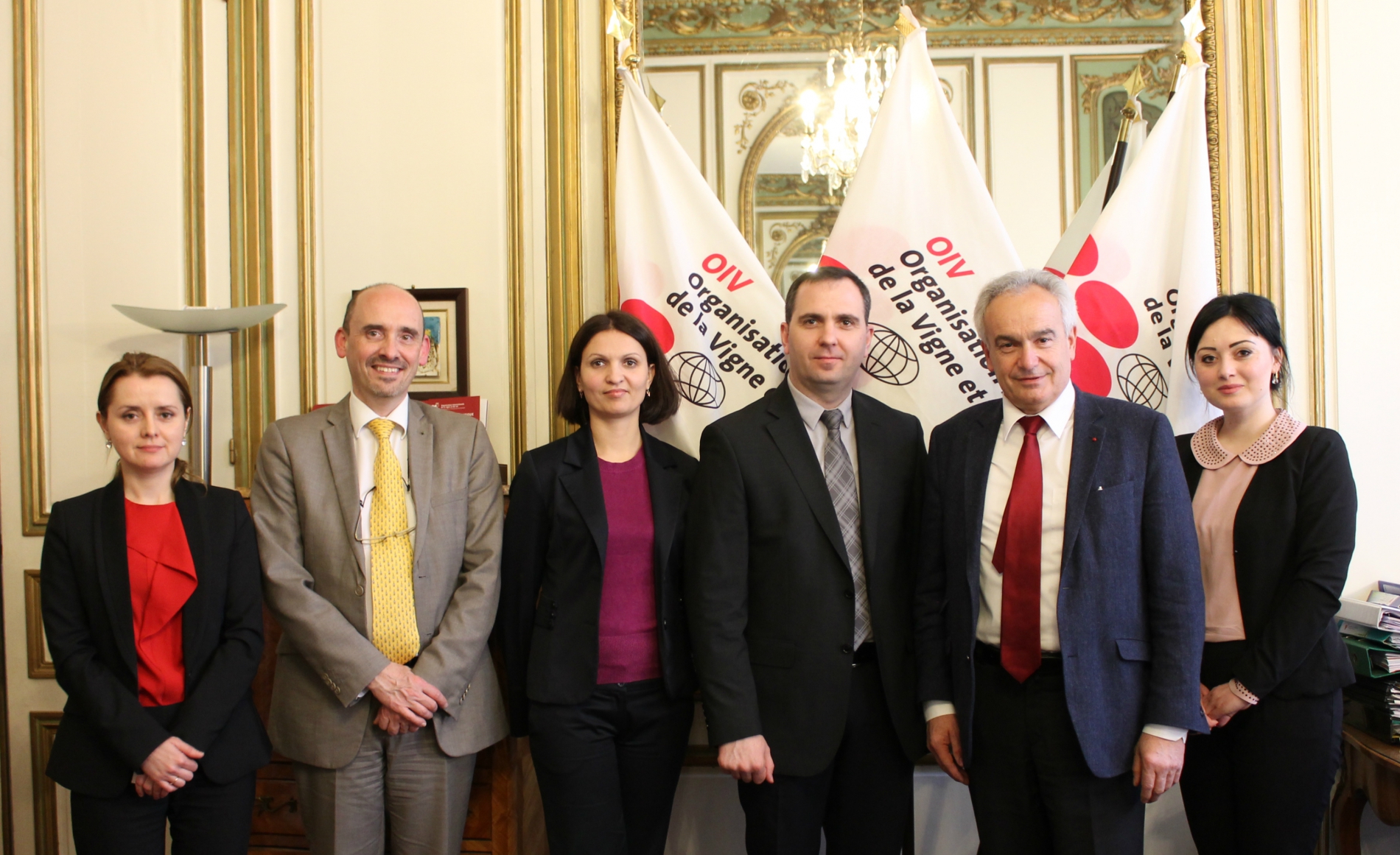
Jean-Marie Aurand, der als Vertreter der OIV erstmals 2014 nach Moldau reiste, nahm die jüngsten Entwicklungen der moldauischen Weinindustrie zur Kenntnis, die für die berühmte und antike Branche einen Umstrukturierungs- und Modernisierungsplan aufstellt.
Vitalie Zaharia, Direktor der Organisation für Export- und Investitionsförderung in Moldau (MIEPO), wies auf die Entwicklungen des Weinbausektors hin, der nahezu 90 % seiner Produktion ausführt und im Hinblick auf Weintourismus, Technologietransfer und Marketingstrategie noch Unterstützung benötigt.
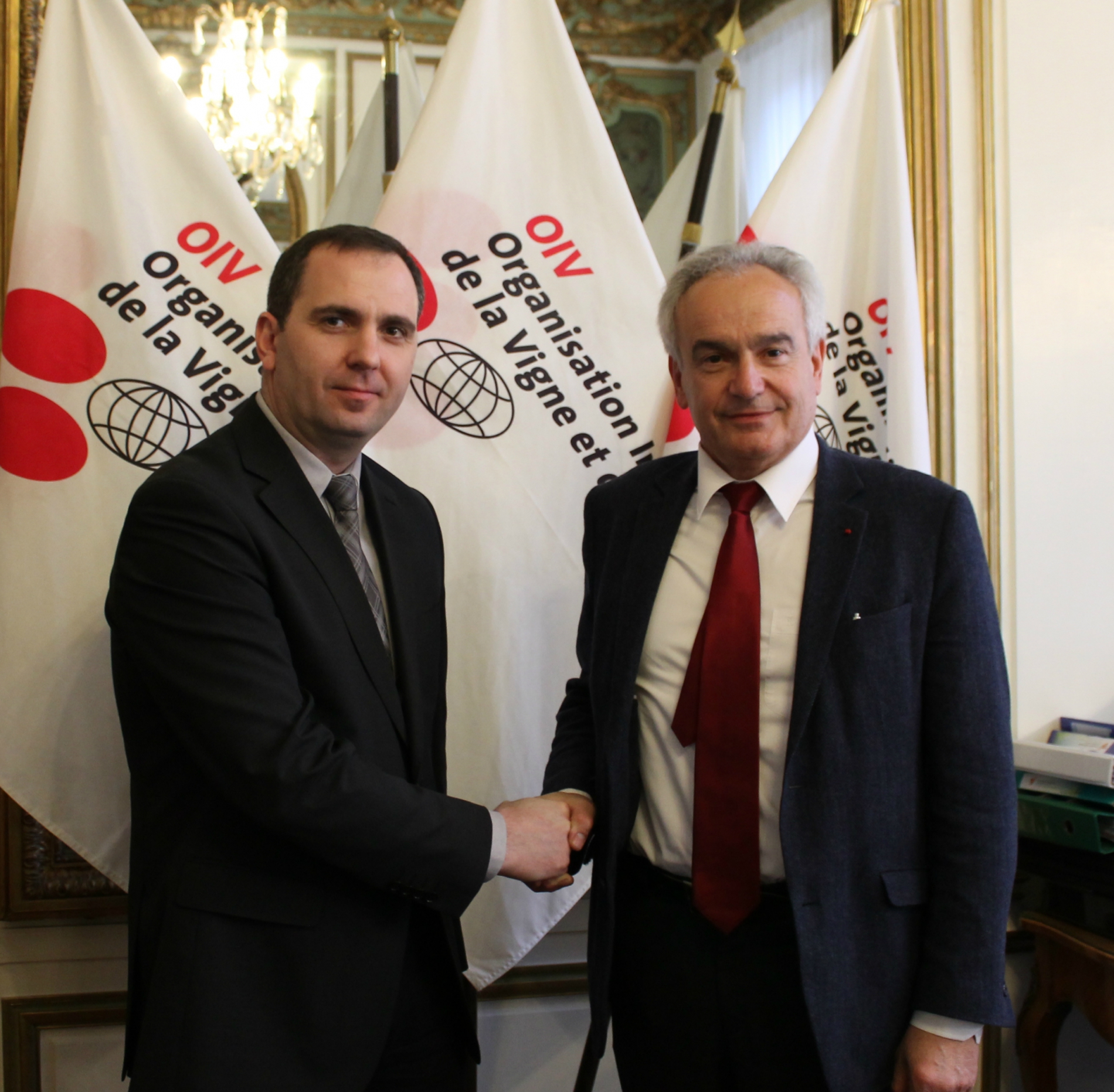
Der Generaldirektor der OIV betonte, dass es wichtig sei, die aktive Teilnahme der moldauischen Experten an den Arbeiten der OIV auszubauen, um das Expertennetz der OIV im Rahmen der Reform des Sektors nutzen zu können. Es wurden weitere Projekte angesprochen wie die Veranstaltung einer technischen Tagung für moldauische Fachleute in Chisinau und die Abhaltung des Weltkongresses für Rebe und Wein und der Generalversammlung der OIV nach 2018.
Jean-Marie Aurand teile ebenfalls mit, dass in der OIV eine Präsentation moldauischer Weine stattfinden könne. Er wies auf den Erfolg der Weinpräsentation 2011 hin, die mit Unterstützung von Herrn Lilian Moraru, dem derzeitigen Botschafter der Republik Moldau in Frankreich, organisiert wurde.
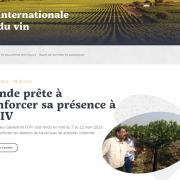
While the wealth of scientific, technical or economic OIV documentation was often recognised by experts or users of the www.oiv.int site, its rather old-fashioned appearance and abundance of sections sometimes made it a little difficult to access the desired information.
The decision was therefore made to give priority to 5 direct sections providing access to information about the OIV, news within the sector, events on the agenda, standards and technical documents, and databases and statistics.
Each section is then further developed so that all of the categories of information are visible from the initial page and, as such, the user is presented with the range of choices on offer to them.
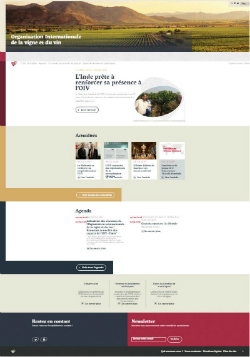
In line with the communicative efforts developed via Facebook and Twitter, this new website gives greater visibility to the news and events happening in the sector, as well as making it possible to access the daily OIV News through a dedicated press area.
It goes without saying that all of the resolutions adopted by the Organisation will remain accessible, in addition to all of the codes, guidelines and other collective expert documents expected to be developed.
Finally, new tools will make it possible to exploit the wealth of information contained in the databases of geographical indications, vine varieties, training programmes and, of course, international vitivinicultural statistics.
The IntraOIV space – reserved for delegates and experts nominated by Member States and Observers – remains identical, the only adjustment being to the new graphic charter.
Happy browsing!
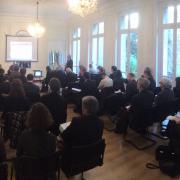
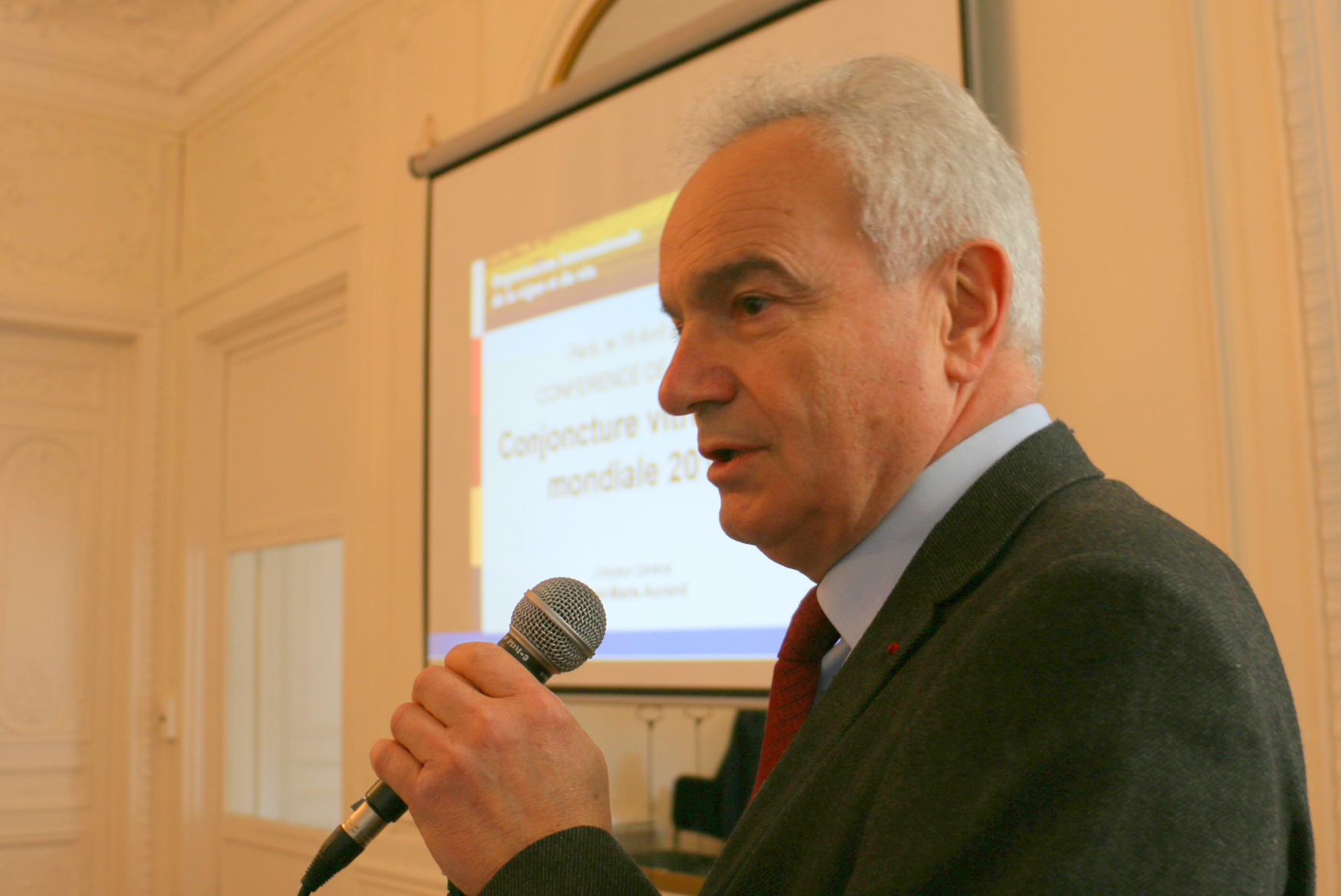
- The size of the global area under vines rose to 7534 kha in 2015: China's vineyard surface area continued to increase (+34 kha), confirming its place as the country with the 2nd biggest vineyard surface area.
- World wine production increased by 2.2% compared with the previous year, reaching 274.4 mhl in 2015.
- Global wine consumption has stabilised since the 2008 economic crisis: it is estimated at 240 mhl for 2015.
- The world wine trade continued to grow in volume and especially in value: 104.3 mhl (+1.8%), 28.3 bn EUR (+10.6%).
Global State of Conditions Report
PPT Presentation [FR]
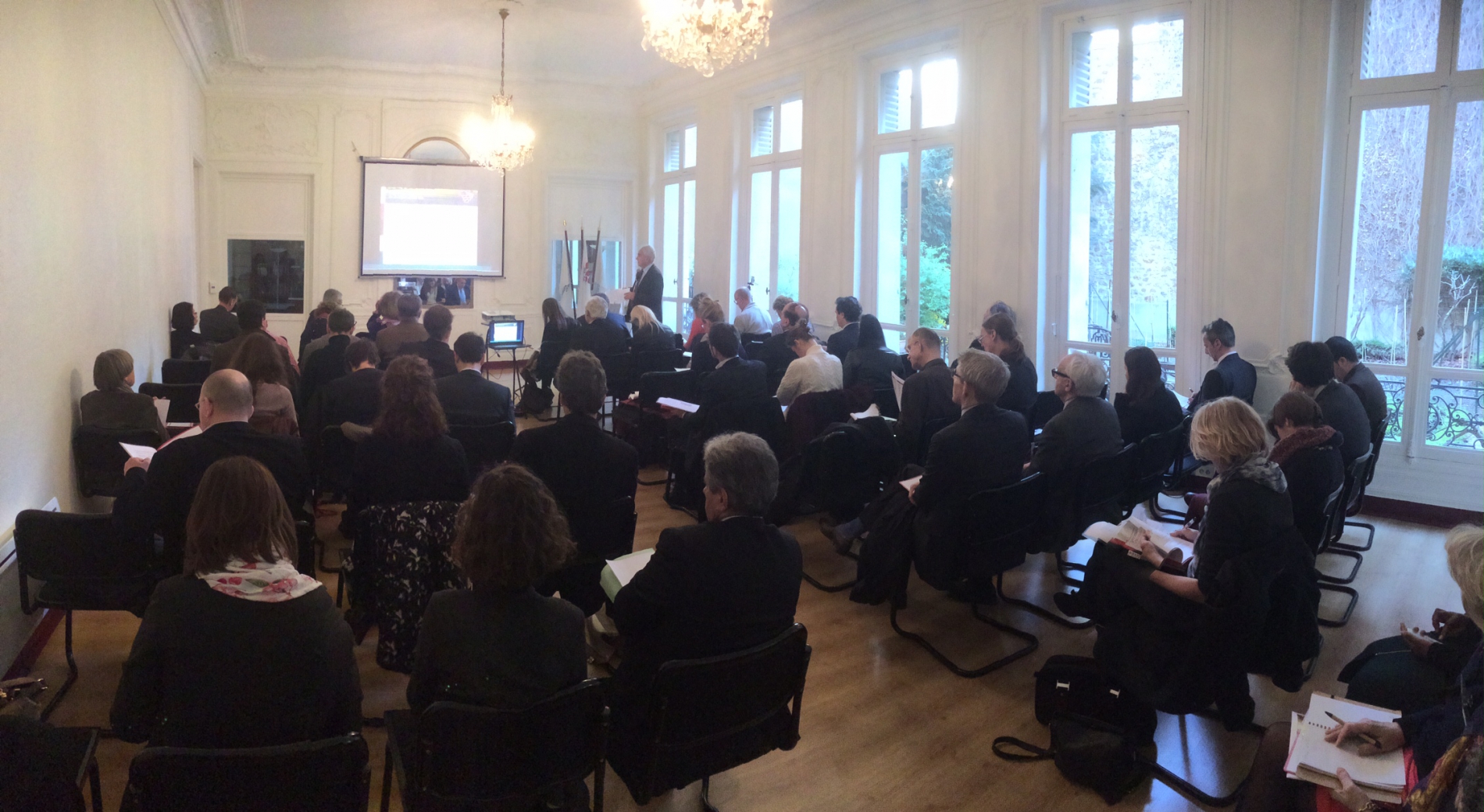
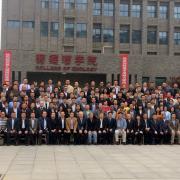
Organised by the College of Enology of Northwest A&F University, presided by Professor Li Hua and Professor Hua Wang, this symposium brought together several hundred participants: experts, academics, professionals in the vitivinicultural sector, students, etc.
The College of Enology is one of the biggest and most renowned in China. Each year, it trains nearly 500 experts at different levels in viticulture and oenology.
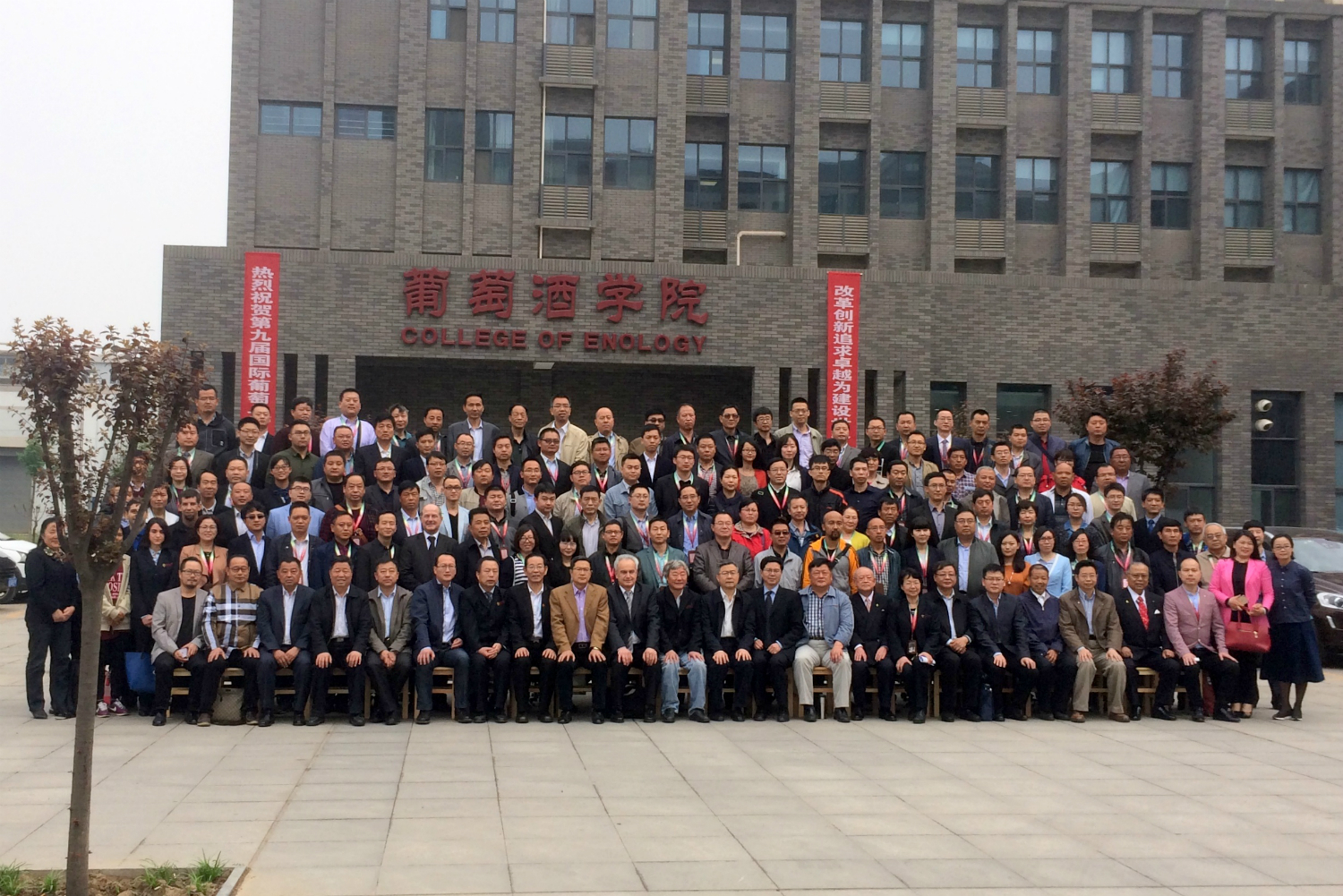
Aside from technical presentations on vitivinicultural activities, the work also gave rise to presentations on the situation and perspectives of the sector in the main Chinese wine regions.
On this occasion, the Director General of the OIV summarised the major trends in global vitiviniculture, highlighting the main issues for the sector in the years ahead and the role of the OIV in this context.

China affirmed its ambitions to be a major player in the sector. With the second largest vineyard surface area for the last 2 years with 830,000 hectares (table grapes and wine grapes), after Spain and before France, China is the eighth biggest wine-producing country globally with 11 million hectolitres in 2015. After two years of stagnation, consumption recorded a recovery in 2015 and China is fifth in the world in terms of consumption.
Jean-Marie Aurand extended his visit to have various meetings with the Chinese authorities and representatives of the China Alcoholic Drinks Association, in order to strengthen ties between China and the OIV with a view to future accession.